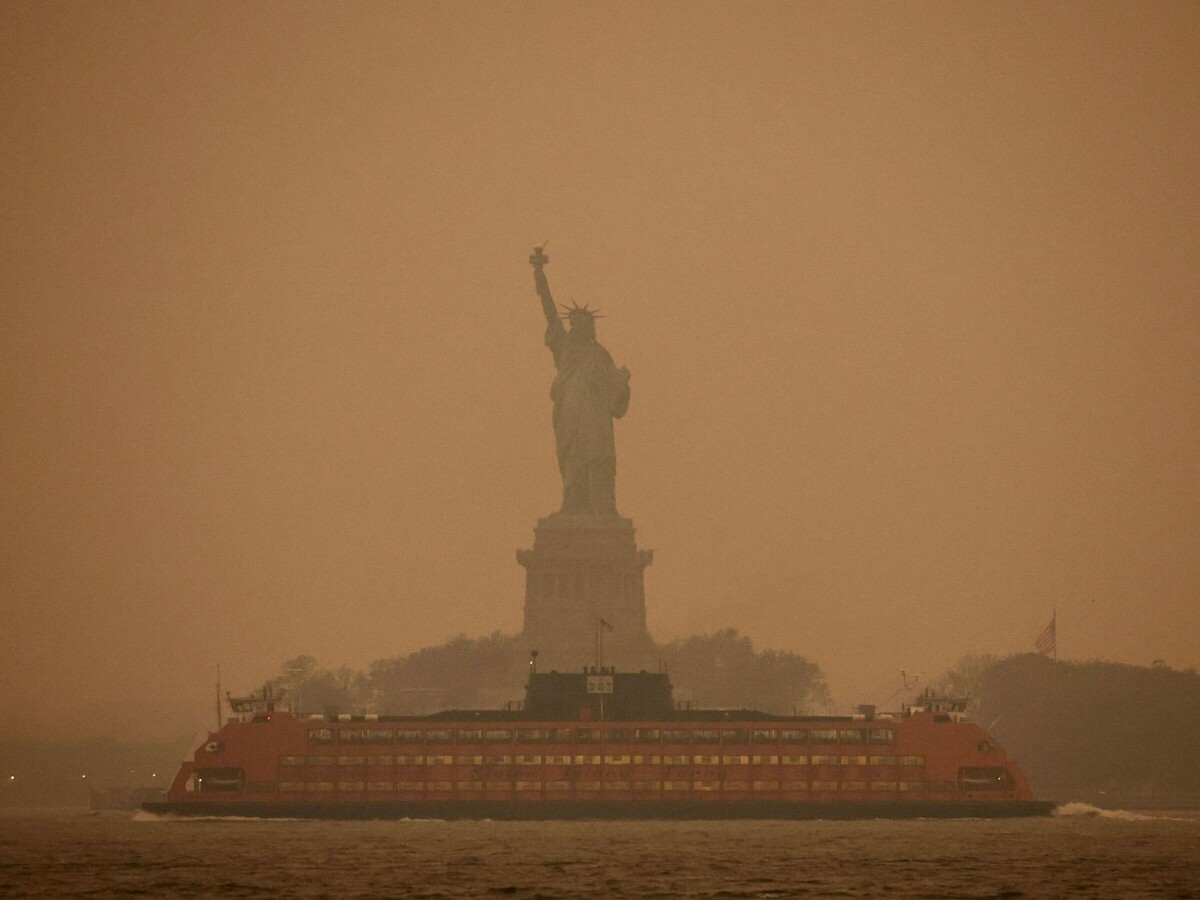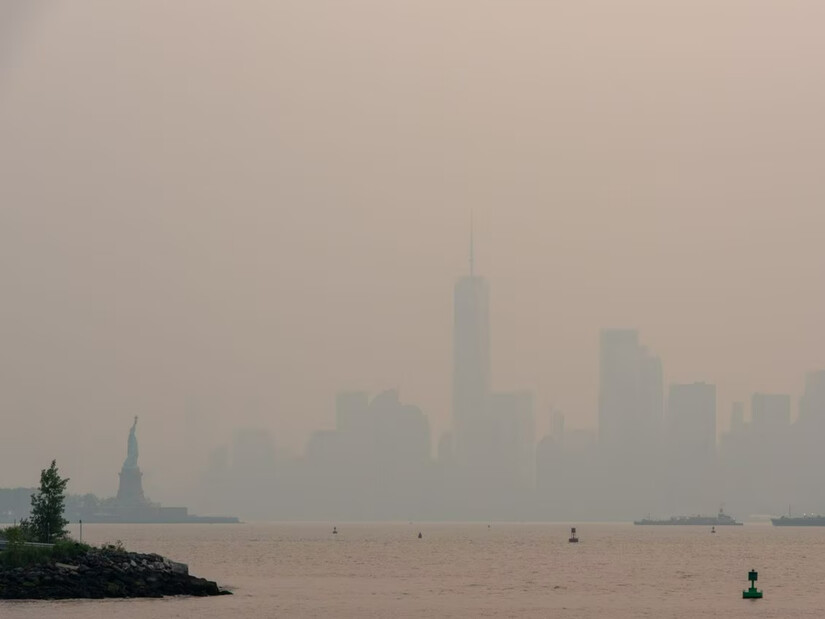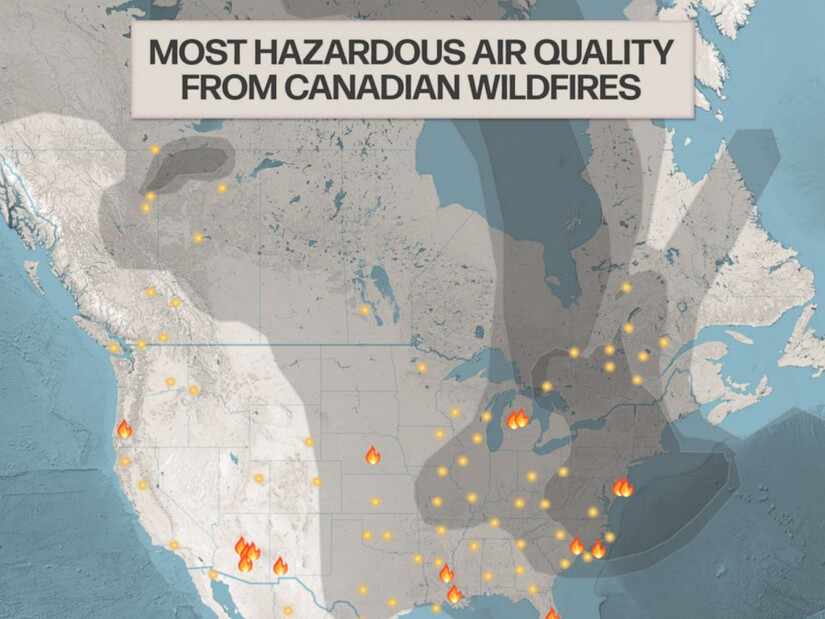Image


Morristown, NJ, June 7, 2023 - A massive blanket of smoke from over 160 wildfires across Canada is creating dangerously unhealthy air quality levels, placing tens of millions of North Americans at risk. Experts attribute this dire situation to a warmer and drier spring than usual, with Canadian officials predicting the worst wildfire season on record.
The dense smoke, originating predominantly from Quebec, has covered extensive areas of Ontario and Quebec. It has also induced an eerie orange haze over much of the north-eastern United States. The extent of the smoke pollution briefly ranked Toronto and New York among the cities with the worst air quality globally.
The U.S. Environmental Protection Agency (EPA) has labeled the air quality across much of the North East as "unhealthy," with an estimated 100 million people across North America currently under some form of air quality warning. This dangerous air quality has cast a hazy orange veil over New York City's iconic skyline, obscuring landmarks like the Statue of Liberty.

In response to the escalating crisis, outdoor activities at New York's public schools have been suspended indefinitely. Public health officials are urging the public to limit exposure to the smoke and avoid outdoor exercise due to associated health risks.
Environment Canada, meanwhile, has issued its highest air quality warning for Ottawa, classifying it as a "very high risk" to health. The air quality in Toronto and surrounding areas has also been designated as "high risk." The smoke's adverse effects have compelled certain regions in Quebec to relocate individuals with respiratory issues to safer locations.
The wildfires, which have consumed over 3.3 million hectares of land—12 times the 10-year average for this time of year—are not restricted to Quebec. Major fires are also wreaking havoc in British Columbia, Alberta, Ontario, Nova Scotia, and the Northwest Territories, prompting the evacuation of thousands of people across Canada.

Wildfire smoke can cause immediate health problems, including shortness of breath, an increased pulse, chest pain, and inflammation in the eyes, nose, and throat. Long-term exposure can lead to serious health conditions like cancer and lung disease. Pregnant women and their unborn children are also susceptible to harm from prolonged exposure to wildfire smoke.
In the face of this unprecedented crisis, residents in areas closer to the fires are strongly advised to wear N95 masks outdoors to block most smoke particles' inhalation. As climate change continues to increase the risk of hot, dry weather likely to fuel wildfires, the race is on to contain the ongoing blazes and safeguard public health across North America.